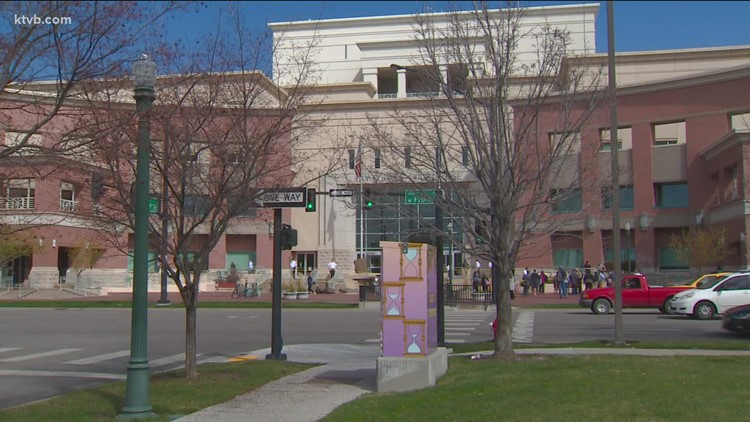BOISE, Idaho — Local activist Ty Werenka won a court challenge against the city of Boise on Thursday after a judge dismissed a citation Werenka received for using a megaphone during a protest against police injustice. The enforcement was an unfair application of the city’s noise control ordinance, Ada County Magistrate Judge Ransom Bailey ruled.
“I think it was the right decision, and I’m glad that it didn’t end up the other way, because I feel like that would have a major effect on chilling people’s speech,” Werenka told the Idaho Press after Thursday’s hearing.
On April 17, a Saturday, Boise Police Officer Desmond Hooks cited Werenka after the activist marched with a few dozen others through downtown Boise. They were protesting the April 11 killing of Daunte Wright by a Brooklyn Center (Minnesota) Police officer. During the unpermitted march, Werenka, who is Black, used a megaphone to amplify protest chants such as “justice for Daunte Wright,” “Black lives matter” and “no lives matter until Black lives matter.”
After the march, Hooks issued Werenka a $156 ticket for violating a city noise control ordinance by using a megaphone.
Werenka, with his pro bono attorney Ritchie Eppink, challenged the infraction and argued the city’s noise control ordinance — city code 5-7-3 — is unconstitutional in that it “grants government agents unbridled discretion to choose when sound amplification is allowed.” The code outlaws the use of a “loud amplification device” that is “plainly audible” on a public right-of-way or street from 100 feet away, unless a permit for the amplification is first obtained from an authorized government entity.
After Werenka requested the case be dismissed Thursday, city prosecutor Jonathan Roundy argued that the statute is narrowly tailored, content neutral and does not deny communication channels — the three standards for government, set by U.S. courts, to restrict speech.
The city government has a “significant interest in keeping the city a peaceful place for the folks that live here,” Roundy said. And the use of an amplification device is restricted by decibel level, not content, nor are megaphones strictly banned by statute.
“You can use a bullhorn so long as you comply with the decibel restriction,” Roundy said. “The words of the statute narrowly apply this ordinance to where people are or have a right to be.”
Eppink countered that Roundy’s argument “underscores the problems with the ordinance.”
Watch more Local News:
See the latest news from around the Treasure Valley and the Gem State in our YouTube playlist:



